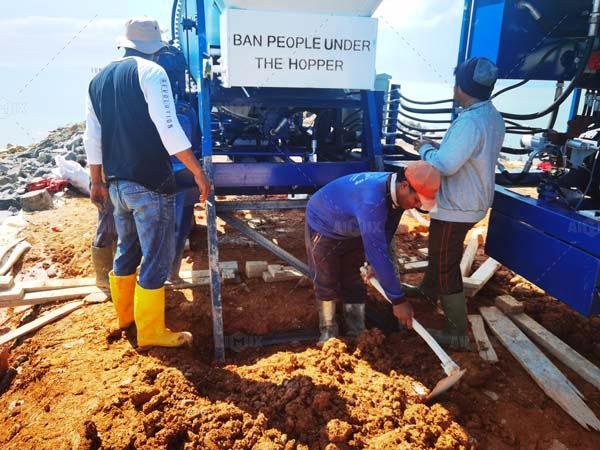Calculating Methods The Pumping Capacity Of A Concrete Mixer and Pump
- By AIMIX Group
- •
- 28 May, 2024
- •
Accurately calculating the pumping capacity of a concrete mixer and pump is paramount for ensuring efficiency and effectiveness in construction projects. This article delves into the intricacies of pumping capacity, explores key calculation methods, and discusses their applications and implications in the construction industry.
Understanding Pumping Capacity
Definition and Importance of Pumping Capacity
Pumping capacity refers to the volume of concrete a pump can deliver within a specified time frame, usually measured in cubic meters per hour (m³/h). This metric is crucial because it directly impacts the pace and productivity of concrete placement. A higher pumping capacity enables faster project completion, which is essential for meeting tight deadlines and optimizing labor and equipment usage.
Factors Influencing Pumping Capacity
Several factors affect the pumping capacity of a mobile concrete mixer with pump. These include the power and efficiency of the pump’s motor, the diameter and length of the delivery pipeline, the type and consistency of the concrete mix, and the overall condition of the pumping equipment. Understanding these factors is essential for selecting the right equipment and ensuring it operates at its full potential.
Key Calculation Methods
Theoretical Calculation Method
The theoretical calculation method involves using standard formulas to estimate the pumping capacity based on the pump’s specifications. This method typically uses the pump’s maximum output rate, as specified by the manufacturer, and assumes ideal conditions. For instance, the formula for calculating theoretical pumping capacity might look like this:
Pumping Capacity (m³/h)=Pump Output Rate (m³/stroke)×Pump Strokes per Minute×60
While this method provides a baseline estimate, it often overestimates the actual capacity since it does not account for real-world variables such as pipe friction, bends in the pipeline, or the viscosity of the concrete mix. Find a best pump here: https://aimixglobal.com/concrete-pump/.
Practical Calculation Method
The practical calculation method, on the other hand, takes into account actual operating conditions. This method involves measuring the amount of concrete delivered over a specific period during actual pumping operations. To achieve this, one could use the following steps:
Measure the volume of concrete delivered in a defined period (e.g., 10 minutes).
Multiply the measured volume by six to extrapolate the hourly pumping capacity.
This approach provides a more accurate representation of the pump’s performance under real-world conditions, including factors like pipeline resistance and mix consistency, which can significantly impact pumping efficiency.
Applications and Implications
Application in Project Planning
Accurate calculation of pumping capacity is vital for project planning and management. By understanding the true capabilities of the pumping equipment, project managers can schedule concrete deliveries more efficiently, allocate resources effectively, and reduce downtime. This foresight helps in ensuring that the project progresses smoothly and meets all critical deadlines.
Implications for Construction Efficiency
The implications of accurately determining pumping capacity extend beyond project timelines. Efficient concrete pumping can reduce labor costs, minimize equipment wear and tear, and improve overall project quality. It ensures that concrete is placed consistently and uniformly, reducing the risk of structural issues caused by improper curing or segregation of the mix.
In conclusion, calculating the pumping capacity of a cement mixer with pump involves understanding both theoretical and practical aspects. By combining these methods, construction professionals can achieve a more accurate and reliable estimate, enhancing project planning and execution. This knowledge is essential for optimizing resources, improving efficiency, and ultimately delivering high-quality construction projects.
AIMIX Global Products
- Stone Crusher
- rock crusher
- Limestone Crusher
- granite crusher
- quartz crusher
- quarry crusher
- Gravel Crusher
- mobile crusher plant
- stone crusher plant
- crushing plant
- mobile impact crusher
- mobile jaw crusher
- mobile crusher
- mobile cone crusher
- mini self loading concrete mixer
- self loading mobile concrete mixture
- self loading concrete mixer for sale
- self loading concrete mixer truck
- self loading cement mixer
- asphalt plant for sale
- asphalt mobile plant
- drum mix plant
- mini asphalt plants for sale
- portable asphalt mixing plant
- asphalt hot mix plant
- batching plant manufacturers
- concrete plant for sale
- small concrete batch plant
- mini cement plant
- mobile concrete plant
- portable batch plant
- stationary concrete batching plant
- ready mix concrete plant
- how does a batching plant work
- concrete batching plant price
- ready mix concrete plant in bangladesh
- concrete batching plant in uae
- concrete batching plant indonesia
- concrete batching plant malaysia
- concrete batching plant for sale australia
- concrete batching plant Philippines
- concrete batching plant for sale UK
- concrete batching plant in saudi arabia
- concrete pump
- concrete mixer with pump
- mobile concrete pump
- portable concrete pump
- concrete trailer pump
- mini concrete pump
- small concrete pumps
- diesel concrete pump
- electric concrete pump
- hydraulic concrete pump
- dry mix mortar plant
- small dry mortar plant
- automatic dry mortar plant equipment
- big dry mortar plant
- dry mortar production line manufacturer
- dry mortar production line
- Tile adhesive manufacturing plant

